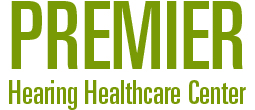A New Class of Hearing Aids
FDA Approves Over-the-Counter (OTC) Hearing Aids
The US Food and Drug Administration (FDA) ruled on August 16, 2022, legalization of ‘Over-the-Counter’ or OTC hearing aids that will take effect within 60 days (estimated mid-October 2022). These products will be available online and in stores to customers without the need of a licensed hearing professional to test or fit the products. What does this mean for you, and how are these products different from hearing aids currently available today?
Now Offering Our Own Over-the-Counter Hearing Aid!
What Does Over-the-Counter Hearing Aids Mean?
Over-the-Counter hearing aids are a new class of hearing devices. Different from traditional or prescription hearing aids, these hearing devices do not require a hearing test or licensed hearing professional to fit. Over-the-Counter hearing aids come with general settings with the ability to make small, limited adjustments, typically lumping low and high frequencies. There is also a mandatory volume control. These hearing aids are only designed to assist someone with mild to moderate self-perceived hearing loss.
Benefits of
Over-the-Counter Hearing Aids
Limitations of
Over-the-Counter Hearing Aids

How Do Over-the-Counter Hearing Aids Differ from Traditional Prescription Hearing Aids?
Traditional prescription hearing aids are specifically customized for your needs and comfort. A licensed hearing professional takes you through a series of physical exams and audio tests to understand your specific hearing needs. The hearing professional will help you determine which hearing aids are right for you and your lifestyle. They can adjust the devices frequencies to match your specific hearing loss needs. The hearing aid can be physically molded to your ear for added comfort resulting in the most natural sounding hearing solution possible.

What Services are Included with Over-the-Counter Hearing Aids?
Typically, Over-the-Counter hearing aids are self-fit with no assistance or support from a licensed hearing professional. At Premier Hearing Healthcare Center, we believe that everyone should experience the joy of hearing. That is why we are offering annual exams and troubleshooting appointments to all hearing aid wearers. Regardless of what manufacturer or where you purchased your hearing aids, we want to help ensure you are hearing to the best of your ability.
To find out more about our services, click here.
What Levels of Hearing Loss are Treatable with Over-the-Counter Hearing Aids?
The FDA limits Over-the-Counter hearing aids to mild-to-moderate self-identified hearing loss only. This is to protect patients from potential harm of over amplification which can result in permanent damage and significant hearing loss. Prescription hearing aids that are fit by a licensed hearing professional can work for all levels of hearing loss from mild to profound.
Are Over-the-Counter Hearing Aids Right for Everyone?
Hearing is essential to our everyday lives. We encourage annual monitoring of your hearing health to keep a watchful eye on changes. Getting the support you need early will ensure you maintain connected to those around you and so you can hear your very best.
There is a new category of hearing aids that are now available over-the-counter. This category will be a great option for many, but is not right for everyone. It’s a good idea to consult a hearing professional on your unique hearing loss and needs to guide you to the right solution for you.
OTC
Hearing Aids
No professional fitting or support provided.
For ages 18+
No hearing evaluation is required
One size fits most
No state requirements for return policy
For perceived mild to moderate hearing loss
Come with self-guided instructions
Prescription
Hearing Aids
Hearing aid programmed and supported by a professional
For all ages
A hearing evaluation is required
Standard and customized options are available
Return policy is mandated by the state
For any degree of hearing loss; hearing aid is programmed to the individual hearing loss profile (audiogram)
Follow-up care and instructions provided by a professional
How Will I Know What My Hearing Loss is?
There are several online hearing tests available, and you can try ours here! However, they are not diagnostic medical tests. The only way to determine hearing loss or if you may need hearing aid solutions, is to schedule a hearing exam with a licensed hearing professional. Both an audiogram and a physical examination are required to determine hearing loss.
Clinically, hearing loss falls into different degrees. Mild, moderate, severe, and profound are some of the most common degrees with variations in between. Your hearing loss degree depends on your ability to hear different pitches (frequencies) at different volumes (decibels dB). Hearing threshold of mild loss is 26-40 dB, moderate is 41-55 dB, severe is 71-90 dB and profound is over 91dB.
No matter what type of hearing aids you choose to try, our hearing aid specialist(s) can help ensure all your hearing healthcare needs are addressed over time as your hearing demands change. The first step would be to call or book your appointment online for a complimentary hearing screening.
Hearing loss is as unique as a fingerprint. While Over-the-Counter hearing aids may be a starting point for some, there are many considerations when choosing the correct treatment for your hearing loss. We recommend partnering with a hearing health professional to find the solution that is right for you. Get the individual treatment you need, schedule your appointment today.



